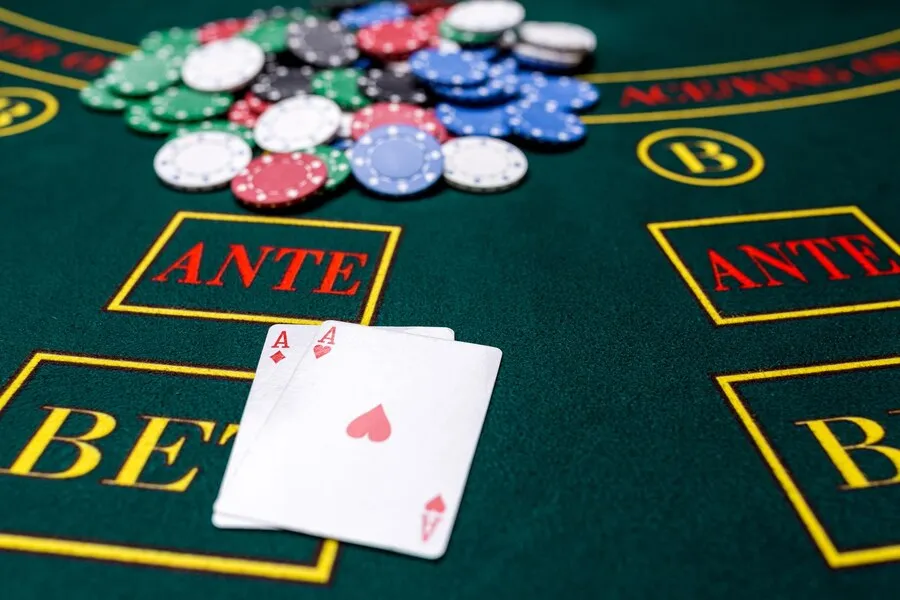Superstitions in gambling determine the behavior of thousands of players as precisely as mathematics determines the probability of winning. Superstitions permeate the atmosphere of casinos: from choosing the color of a shirt to the prohibition of looking at the dealer before dealing. In every detail, the gambling mind notices a sign, and in every gesture – a harbinger of luck or loss. These are not just beliefs, but a system with established logic, rooted in history, and practically influencing decisions at roulette, cards, and slots.
Why superstitions in gambling work
Since the 19th century, card games and roulette have gathered not only players but also beliefs around them. Even then, Fortune seemed capricious, and casino visitors sought ways to appease her. Superstitions arose on the border of statistics and intuition – more often intuition.

History notes: the first professional gamblers in Venice used coins with a hole as talismans. Today, this tradition has transformed – plastic rabbit feet, lucky tokens, and even chips touched with lip balm continue to symbolize good fortune.
Psychology of superstitions in gambling
A player analyzes, but at the same time – seeks symbols. Psychology in gambling explains: the brain remembers coincidences, ignores failures. Victory after snapping fingers creates a habit. Thus, a ritual is born.
When a casino participant repeats a movement before placing a bet, neural connection is activated: “if it worked – repeat.” This is how stable superstitions in gambling are formed – personal and passed around in circles. Behavioral psychologists call this the illusion of control effect.
What helps to believe in luck
In many cultures, belief in luck takes the form of rituals, turning the ordinary gaming process into something special. Such actions create a sense of control over randomness and give the game personal meaning. Superstitions are often based on individual experience, but many customs have become mass phenomena.
Lucky rituals:
- Wearing specific clothing (often red – the color of victory in Chinese tradition).
- Using a lucky talisman in the casino – a coin, figurine, token.
- Choosing “your” slot machine or table.
- Ritual of tapping on the table or machine before starting.
- Entering the room strictly with the right foot.
- Avoiding talking before the first bet.
Such behavior does not always affect the outcome, but it increases confidence, and therefore influences decisions. Believing in luck in a casino, a player makes a bet more consciously, which paradoxically reduces the likelihood of impulsive losses.
Bad omens: what to avoid in casino halls
Prohibited actions in the game are perceived as a challenge to luck and can spoil the mood even before the first bet. Such superstitions are passed from player to player, forming an implicit code of behavior in the hall. Superstitions in casinos concern not only “what to do” but also “what not to do.”
There are established taboos:
- Not counting money at the table – leads to losses.
- Not sitting at the roulette table with your back to the exit – takes away luck.
- Not putting a hat on the table – a symbol of poverty.
- Not passing chips through the hand – “interrupts the energy of winning.”
- Not shaking hands before placing a bet.
Such bad omens in casinos create an atmosphere of special alertness and involve not only the mind but also faith in the game. Superstitions in casinos fuel the excitement and form rituals where a bet is not just a number but part of a whole scenario.
Symbols and numbers: where Fortune points
Numbers are organically integrated into superstitions in gambling. For example, in Asia, 8 symbolizes infinity and wealth, while in Western culture, 7 is the embodiment of luck. Experienced players use numerology to choose a bet, preferring “their” combinations.
Equally important is the direction of the roulette wheel’s rotation, the time of day, or the phase of the moon. According to Las Vegas casino statistics, evening sessions from 7:00 to 10:00 bring the biggest winnings. For many, it’s a direct sign: evening = luck.
Talisman, sign, chance: how to attract luck in gambling
Many players study ways to enhance luck at the gaming table, not through strategies, but through symbolism. The tactic includes using specific items, clothing, mantras, and behavior:
- A note with a “lucky word” in the pocket.
- A trinket received from an old man at the entrance – leads to a big win.
- The first throw on slots is always on an odd number of coins.
- Entering the casino only after turning left – a sign of a new path.
This builds belief, enhances the thrill, and creates an internal attitude towards victory. Such actions do not negate statistics but increase luck – at least in one’s own mind.
Win or lose: the line between belief and calculation
Superstitions in gambling do not replace mathematics but influence behavior. A player confident in symbols acts more decisively, thus avoiding indecision – a key factor in losing. On the other hand, excessive belief in rituals reduces critical thinking and leads to mistakes. For example, a “lucky” bet made against logic and probability often results in loss.
Psychology notes: belief in superstitions in gambling often works as a “placebo effect.” The ritual boosts confidence, reduces anxiety, and prepares for risk-taking. The player feels in control, even if the outcome depends entirely on the random number generator.
When tradition dictates behavior: culture and gambling
Casinos in different countries cultivate unique traditions. In Macau, strict customs are observed – no one takes change before entering the hall, believing it will take away future winnings. In Monte Carlo, players often bring their own chips to the hall – “charged” with experience.
Ethnographers note: superstitions in gambling reflect cultural code. European players often rely on numbers and sequences, Americans on clothing, Asians on symbolism and spirits. In Japan, purification rituals are widely used before a big bet, including hand washing and brief meditation.
How players use superstitions in gambling
Many turn personal observations into stable gaming habits, repeating them time after time. These actions instill confidence and become a unique script where every detail seems to influence the outcome.
Real-life examples show how specifically players follow their beliefs:

- Clothing color – preference for red, blue, or green as “colors of success.”
- Order of entry – entering the hall strictly clockwise.
- Talisman in the pocket – a coin, stone, key, or item found before a big win.
- Changing seats – after three losses, the player changes the table or machine.
- Silence before the first bet – tuning the “inner compass.”
- Abstaining from alcohol until the first win – maintaining control.
- Specific combination of bets – “for luck” or “on intuition,” but with repetition.
- Rotating chips or dice before a throw – as an act of focus.
- Not interfering in losses – if a neighbor is losing money, do not engage in conversation.
- Ignoring even bets – “all even numbers lead to stagnation.”
These actions form a unique style of play, where logic combines with symbolism. Regardless of rationality, rituals allow players to feel in control of randomness and act more focused.
Conclusion
Superstitions turn gambling into a system with understandable rules and personal benchmarks. A player relies not only on luck but also on rituals that give meaning to the bet.
Behavior built on symbols and signs helps maintain focus and confidence. Thus, a special gaming culture is formed – with its own laws, language, and way of thinking.
 en
en  ru
ru  de
de  ar
ar  es
es  hi
hi  fr
fr  nl
nl  it
it  pt
pt  el
el 









